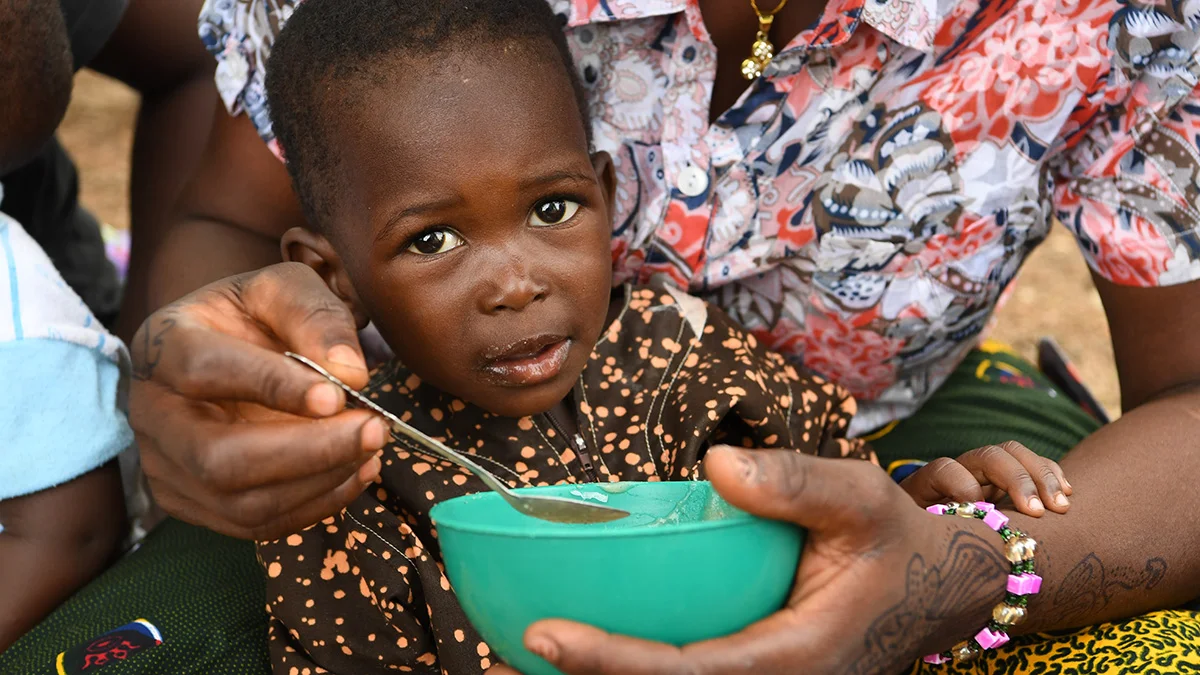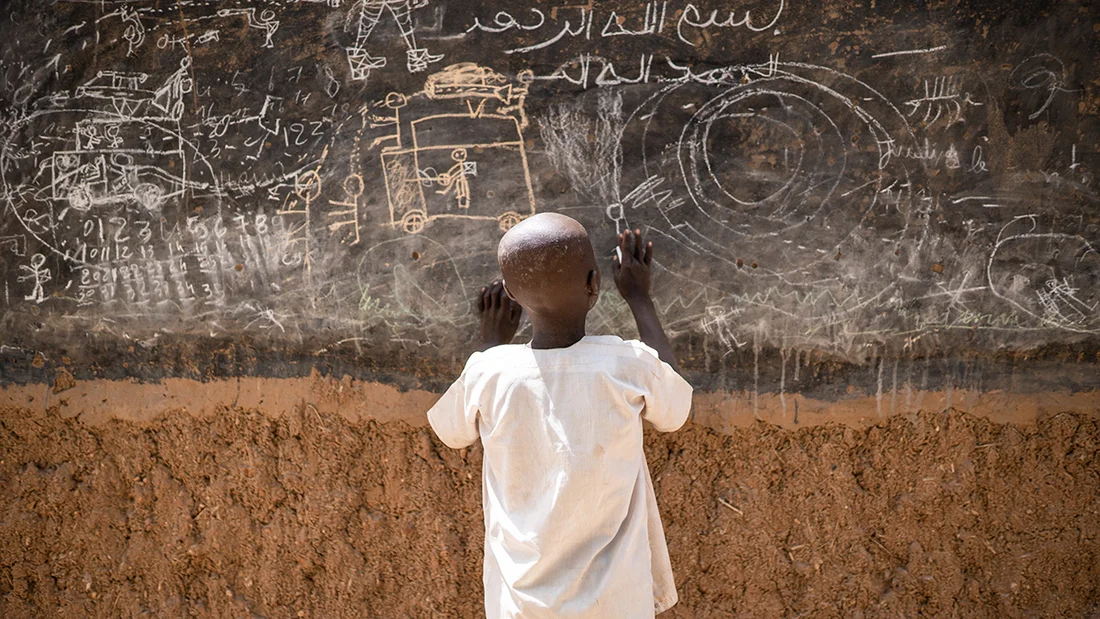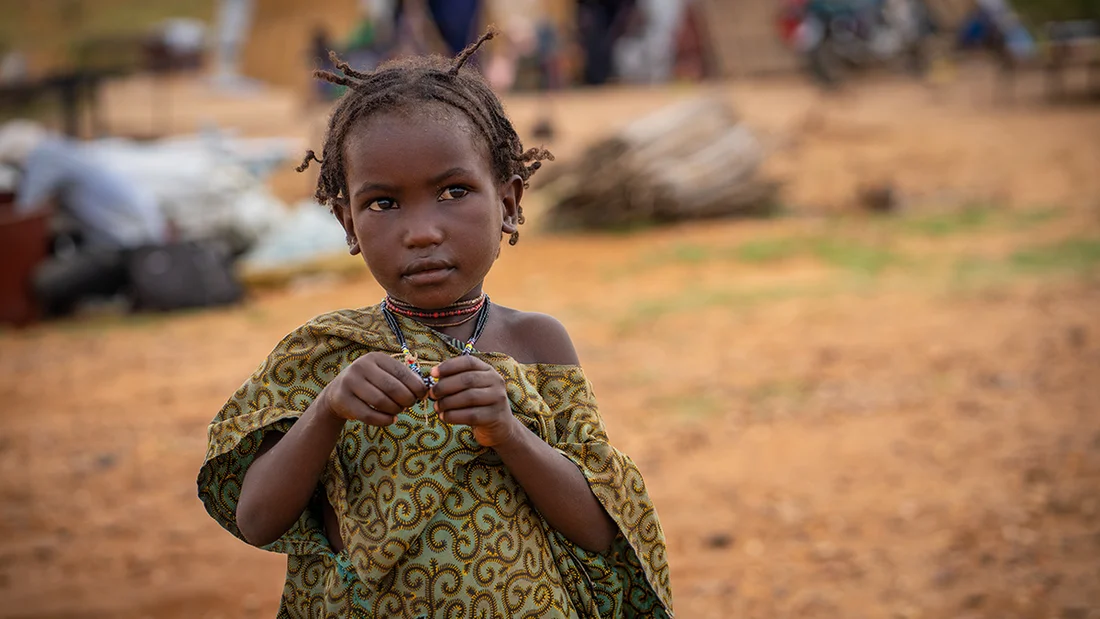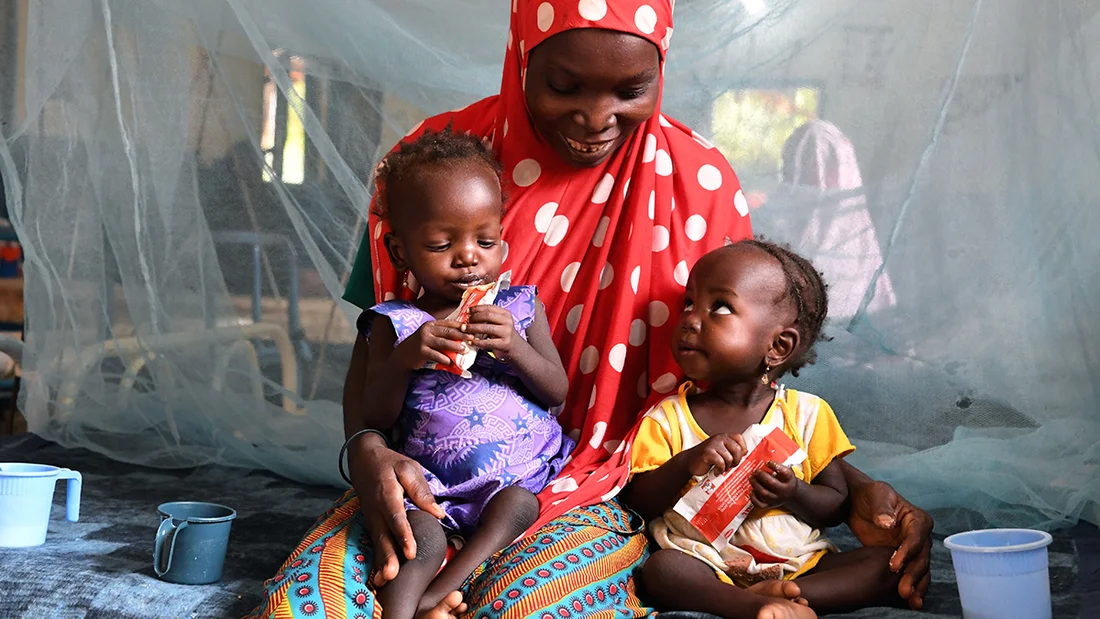The rise in armed conflicts in the Central Sahel countries – Niger, Burkina Faso and Mali – is having a devastating impact on children’s survival. There, more than half of all children under the age of two suffer from severe malnutrition. Over ten million children across the entire region need humanitarian aid now.
In recent months the rise in state military operations against non-state armed groups (NSAGs) has resulted in numerous children being injured, losing their freedom, and losing their lives. Many schools, hospitals and other civil infrastructures in these three countries have been damaged or destroyed. Dozens of children were arrested for alleged ties to NSAGs.
children
children
people
Children on the front lines of armed conflicts
The number of reported security incidents in the Central Sahel in 2021 was sixteen times higher than in 2015. The crisis has led to the displacement of 2.9 million people, both within and beyond the country’s borders – and more than half of them are children. The violence has drastically reduced access to basic social services. Nearly 5,000 schools throughout the entire Sahel region can no longer operate as before or have shut down completely. The drop-out rate is currently 50 percent.
Countless children – both girls and boys – have been significantly affected by the impacts of the conflict and are especially vulnerable. Girls are often the victims of exploitation, rape and other forms of sexual violence. Many boys are conscripted into NSAGs and are at high risk of being killed or maimed on the front lines.
The humanitarian situation in Niger
Niger is currently facing a combination of both acute and protracted humanitarian crises. In 2023, forced resettlement, malnutrition, recurring epidemics, cyclical flooding and droughts have resulted in more than 3.7 million people being in urgent need of humanitarian relief, including two million children. There are also ongoing armed conflicts which additionally weaken the country and contribute to the mass exodus of the population. Many flee to areas that are hard to reach due to the precarious situation: the poor infrastructure makes it harder to provide emergency medical supplies and vital assistance.
Another problem is the interruption of basic services, both by the conflict and by floods. Outbreaks of measles, meningitis and cholera are still spreading and almost 1.3 million people urgently need access to emergency WASH services.
The region has experienced an increase in serious child rights violations: girls and boys are at a high risk of being subject to exploitation, abduction, recruitment by NSAGs, and child marriage. The violence in connection with attacks by armed groups has left children severely traumatized and in urgent need of psychological and psychosocial support. In addition, food insecurity in Niger is pervasive: between January and September 2022, almost 580,000 children under the age of five suffered from malnutrition – more than 61 percent from acute malnutrition.
The crisis is spreading
The Central Sahel is home to one of the fastest-growing humanitarian crises in the world. Unfortunately, this is a region that gets very little attention and very little help.
While the humanitarian situation in Niger, Burkina Faso and Mali continues to worsen, the insecurity is spreading south to the hitherto unaffected coastal countries of Benin, Côte d’Ivoire, Ghana, Guinea and Togo. And with dire results: almost four million children are now exposed to additional dangers and urgently need help.
UNICEF provides crucial aid to people in the Central Sahel, and never gives up. It provides health and nutrition services to help malnourished children in remote regions. UNICEF also provides programs for parents to raise awareness on topics such as child nutrition, education and hygiene.







